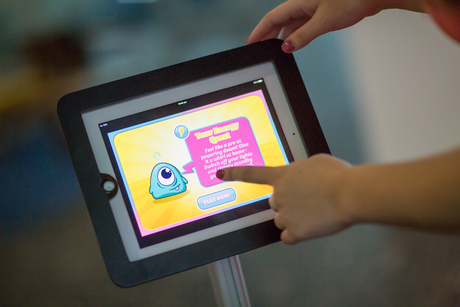Saving energy isn't a game... or is it?

Brisbane’s new energy-saving program ‘Reduce Your Juice’ has been launched to help lower the cost of living for Brisbane’s low-income renters, with program participants having the opportunity to save up to 19% off their average annual electricity bill.
Created by Brisbane City Council sustainability agency CitySmart in collaboration with Queensland University of Technology (QUT) and funded by the Australian Government, the trial program combines best-practice digital and social marketing research to motivate and improve energy-efficiency decision-making behaviours. The program involves two rounds of 500 participants aged between 18-35 years, renting in Brisbane, Logan, Moreton Bay and Redlands council areas, staged across two six-week periods this year.
The first round of participants will commence the program on 1 June with the download of the Reduce Your Juice app. The app delivers three mini-games - Power Raid, Temperature Defender and Fully Loaded - that aim to virtually engage players to help them learn about energy use in the home, the impact of their behaviour on energy consumption and their ability to make real-life behavioural changes.
Participants will be encouraged to put their learnings from the ‘virtual world’ into action through tips and tricks delivered via digital messages called ‘Powerhacks’. Additionally, those who play the games for 10 minutes each week, and complete relevant surveys to monitor the program’s success, will be rewarded for their progress, including the chance to earn either a replacement energy-efficient fridge or washing machine, or a Weber BBQ.
The learning method will be tested against informational-based approaches typically delivered through mass media or face to face. QUT Social Marketing Professor Rebekah Russell-Bennett noted, “Most traditional energy-efficiency programs use an information-deficient approach - basically they assume people lack the knowledge of how to reduce their energy.
“Reduce Your Juice has adopted a best-practice framework using leading theory that recognises that energy efficiency in the home is a low-involvement act and that people often don’t care or think about electricity until the bill arrives,” she said.
“Through the use of social marketing-based game playing, participants aren’t asked to change their values around energy use; rather, through clever game play engagement, they gain increased knowledge that results in positive behavioural changes.”
Professor Russell-Bennett said not only was game-playing an innovative approach to tackling energy usage in the home, but the methodology behind the whole program to change energy use behaviour is an international first.
Tragic incident at wind farm under investigation
WorkSafe Victoria is investigating the death of a worker who was crushed by a wind turbine blade...
CSIRO's new facility for printed flexible solar techology
CSIRO has opened its $6.8m PV facility in Victoria, which is taking printed flexible solar...
Trinasolar launches agrivoltaics project in NZ
A collaboration with Kiwi Solar and Trilect, the project marks Trinasolar's third foray into...









